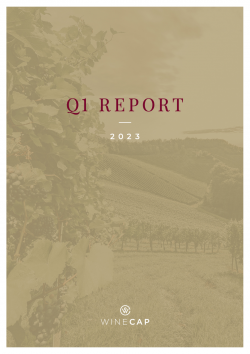Q1 2023 Fine Wine Report
Our Q1 2023 report has now been released. The report examines how the global financial turmoil of the first quarter impacted the fine wine market, the factors affecting demand, and the best performing wines and regions. Download your free copy today.
Key findings include:
- Mainstream markets had a rollercoaster quarter, but fine wine remained relatively unaffected.
- Fine wine prices have risen for two consecutive months after a slow start to the year.
- Several Bordeaux 2011s enjoyed heightened demand and rising prices in light of Chinese New Year.
- The Burgundy 2021 campaign was met with mixed sentiment from the trade due to low allocations and high prices.
- Axel Heinz has left Ornellaia to join Château Lascombes and bring fresh life into the estate, which has been underperforming the Super Tuscan in recent years.
- The spotlight is now on Bordeaux, with the En Primeur release of the 2022 vintage, which has been described as ‘very promising’.
Click below to download your free copy of our quarterly investment report.

Fine Wine Report